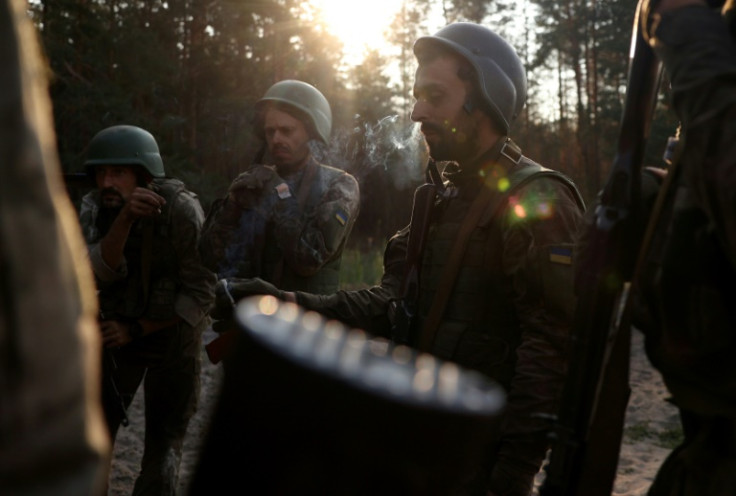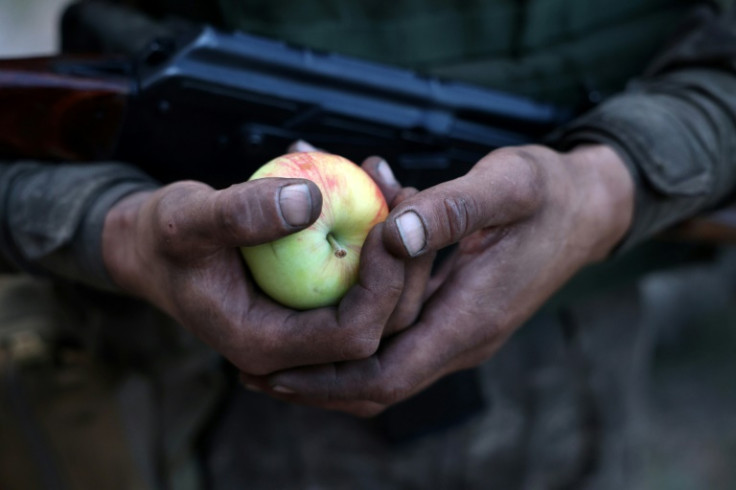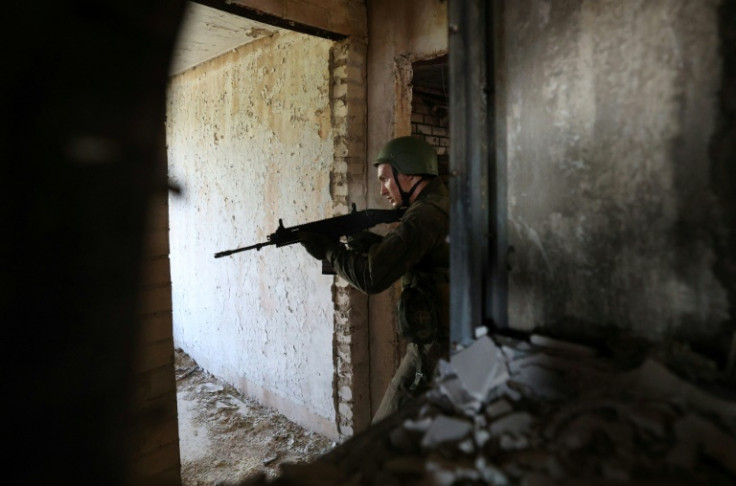
The tired troops moved through the forest in east Ukraine at dawn, imitating assault rifle fire while searching for non-existent Russians between the trees.
Unlike the thousands of Ukrainians who enlisted when Russia invaded in February 2022, these fresh army recruits training in the war-ravaged Donetsk region were forced to sign up.
Facing severe manpower shortages, Ukraine has been mobilising thousands of men to replenish the army's ranks after two costly years of fighting.
President Volodymyr Zelensky signed a new law in May lowering the minimum age that men can be drafted and military recruiters prowl the streets checking documents.
The new members of the 49th Carpathian Sich assault battalion were among those summoned -- or hauled off -- to army recruitment centres.
Press officer Vasylyna Nakonechna, 32, said the task of picking out motivated "fresh blood" to join the battalion was increasingly difficult.
"Competition is fierce between the brigades. It's first come, first served," she told AFP.
Her battalion was made up entirely of volunteers when Russia invaded. But no longer.
"They're all dead or wounded," Nakonechna said.
When seeking replacements, "we choose the youngest first," she said.
A towering military instructor bellowed at the men not to point their rifles at other recruits.
"The training they receive at the mobilisation centre is totally useless," Nakonechna said, explaining why newbies were carrying out more drills.
The instructors were wounded or traumatised combat veteran troops -- not even in their 30s -- rotated from frontline roles.
Among them was Ares, a military volunteer from a foreign country who had a bullet in his leg, and had suffered several concussions and post-traumatic stress disorder.
"I'm tired. All the old timers are dead, wounded or at the end of their tethers, like me," he told AFP.
Motivating the new recruits was a painstaking task for Ares, who fought alongside volunteers when the Kremlin launched its invasion.
"Get your balls and fight! Or tell us clearly that you don't give a shit and we'll leave the country for the Russians!" he vented to AFP.
The sound of artillery from real fighting echoed as the rookies manoeuvred around garden gnomes outside a destroyed house.
Nakonechna said she understood why some recruits -- a former musician, cook and construction worker among them -- were not eager to fight.
"They had a life, a family. Almost three years of war is exhausting," she said as the trainees lined up for a breakfast of porridge.
One recruit who identified himself as "Chemist" said he was scooped by the military during a random ID check.
"I went to work like any other morning but that same evening, I was on my way to the barracks," Chemist, who joined the 49th earlier this month, said.
Another of the recruits, a former foreman, said he never imagined he would pick up a Kalashnikov or leave behind his now distraught family.
"It's a war. They know all too well what it's like to lose a loved one," the 32-year-old said.
Oleg, who declined to give his last name, went to a recruitment centre to update his military papers in line with the new legislation.
"But they told me I was fit for combat," the 24-year-old former postman from western Ukraine said behind large glasses.
Under the new mobilisation rules, only those aged 25 and over are eligible for mobilisation.
"I was a bit confused at first, I didn't understand what was happening," he said.
"The woman in charge of mobilisation didn't explain anything to me," he said, his hands stained with gun oil.
Under the trees and kneeling in the mud, Oleg said he was bound to end up on the front.
"Whether it's now or in seven months' time, it doesn't matter," he said.
Looking around at her worried recruits, Nakonechna said mobilisation should focus on those willing to fight because those who aren't are "useless."
"I think things are going to change" when authorities "start to understand that motivation is the key," she said.
"Not everyone is cut out for combat," Farik, a veteran trainer chimed in as he toyed with his bayonette.
"Why make people fight who don't want to?"
The unit is expected to be deployed before the end of the month.
Chemist is resigned. It's not death that frightens him now but the prospect of injury -- physical or psychological.
"I want to be able to live a normal life afterwards," he said.









